Why Is Measuring and Tracking SEO Results Important?
First, SEO is A LOT of work.
So you need to know if all that work is paying off.
Unfortunately, most companies don’t track SEO results.
I’ve seen it firsthand…
A company goes “all-in” with an SEO campaign.
So they create tons of content.
Build links.
Optimize title tags.
And when you ask them if they saw an ROI, they shrug their shoulders.
Considering that SEO is a HUGE investment of time and energy, it’s important to know whether or not all that effort made a dent.
(I’ll show you exactly how to do that in a minute)
Second, your SEO results let you know if you need to change your approach.
A lack of results doesn’t necessarily mean “SEO doesn’t work”.
It could simple mean that you need to change or tweak what you’re doing.
And closely monitoring your results lets you know whether you’re on the right track… or need to change course.
Best Practices
Organic Traffic
Organic traffic is my #1 SEO metric.
Why?
Because the ultimate goal of SEO is to get more traffic from search engines.
And if your organic traffic looks like this…

…it’s clear that SEO isn’t working for you.
Yes, you should also track your Google rankings for your main keywords. That said, moving up from #7 to #5 in Google may not make a significant difference in your traffic.
Plus, looking at rankings alone doesn’t tell you much. Website rankings move up and down all the time. And if you track thousands of keywords, it’s hard to make sense of all this movement.
That’s why I zero-in on organic traffic.
To measure organic traffic, login to Google Analytics.
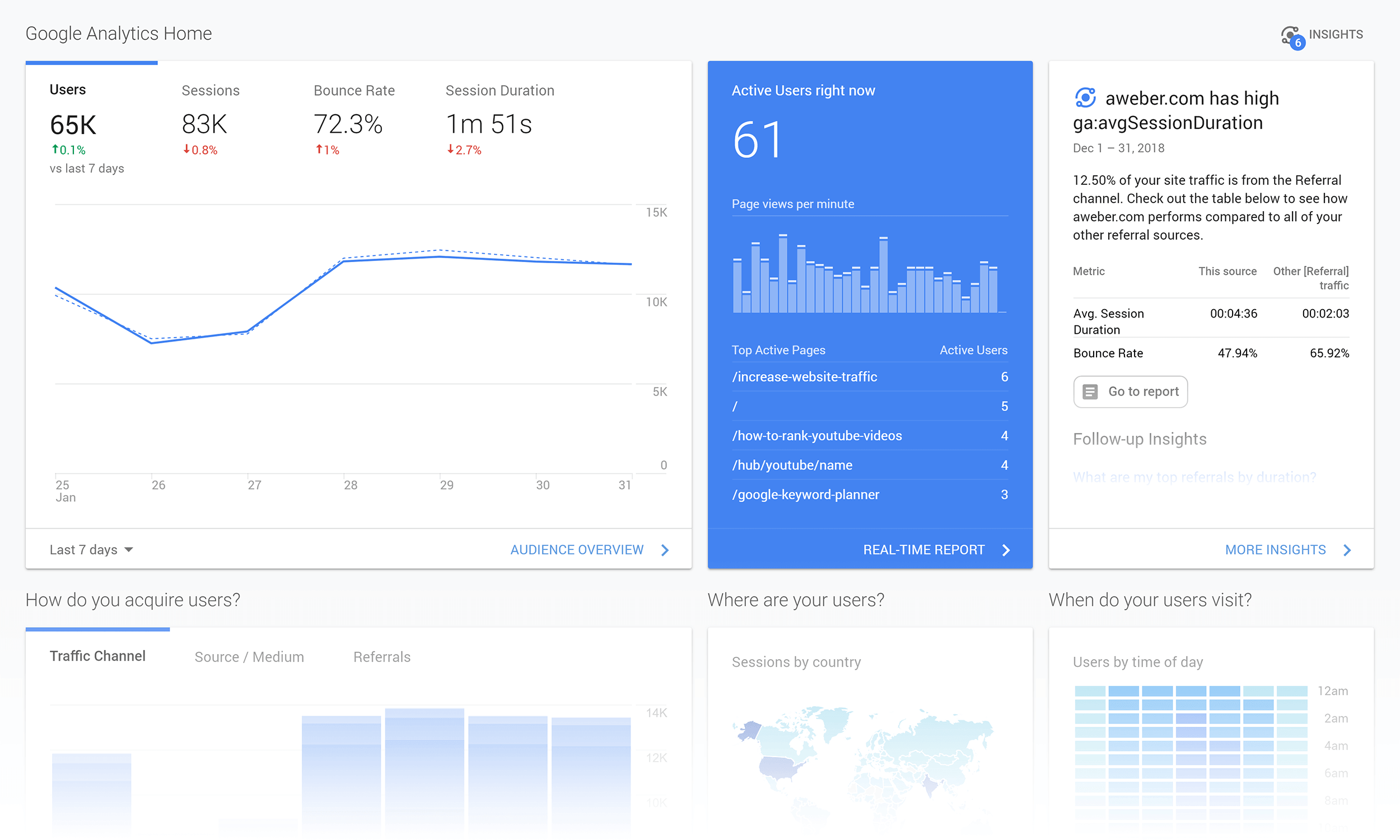
And click on “Audience” → “Overview”.

Hit the “Add Segment” box at the top of the page.

And choose “Organic Traffic”.

Then, set the date range to the last 90 days:

And voila! You’ll see your traffic from search engines over the last 3 months.

If you want to dig deeper, hit “Compare to previous period” to see how the last 90 days compares to the 90 days that same before:
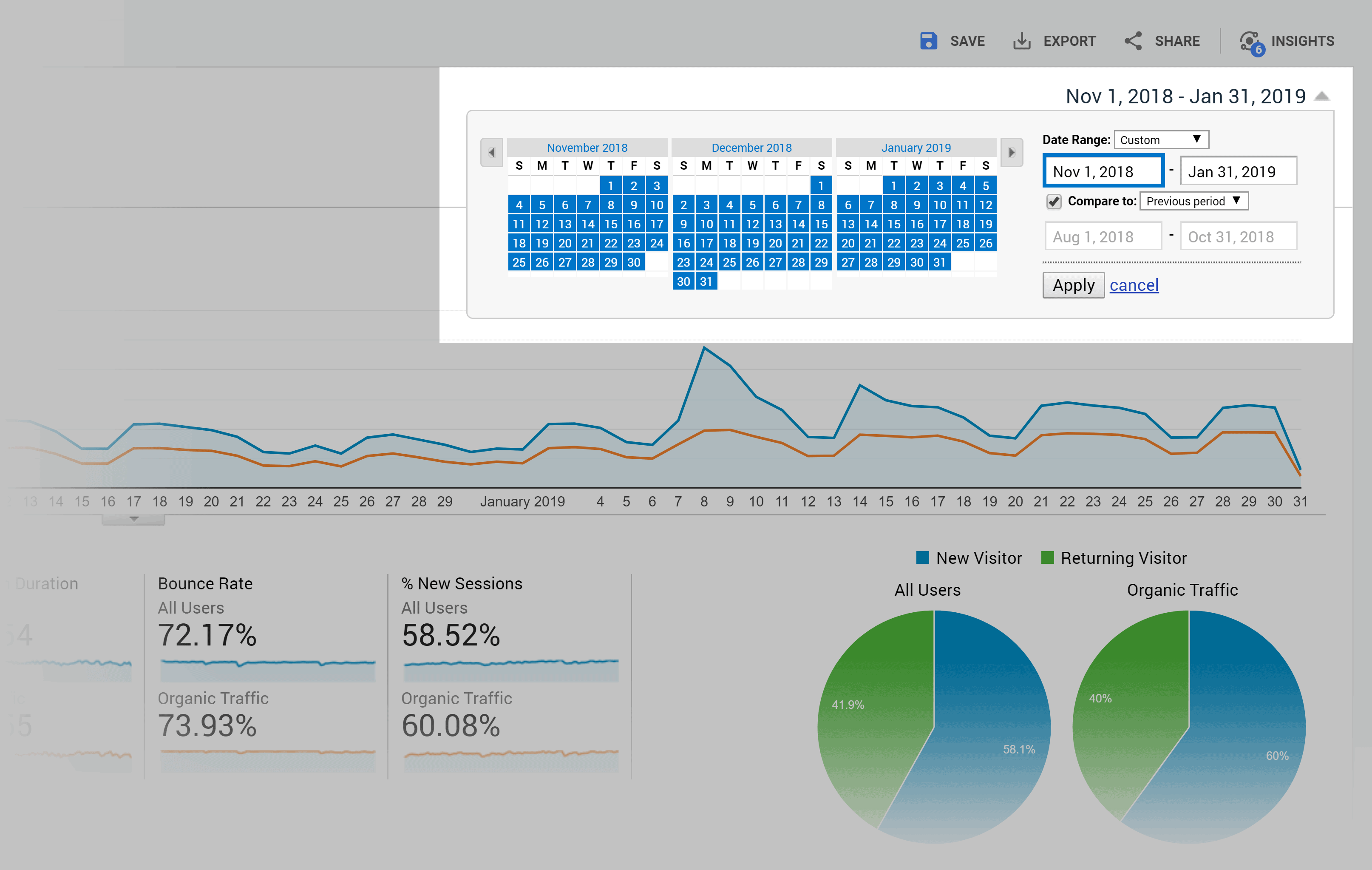
If things are moving up, great!
If not, it could be that your SEO approach needs a tweak or major overhaul.
(Note: Yes, SEO takes time to fully kick in. But if you’re spending a ton of time on SEO you should start to see SOME improvement within 2-3 months)
Keyword Rankings
Looking at your site’s Google rankings isn’t NEARLY as helpful as looking at organic traffic.
That said, rankings are still an important part of measuring SEO results.
In fact, I track hundreds of keywords in SEMRush:
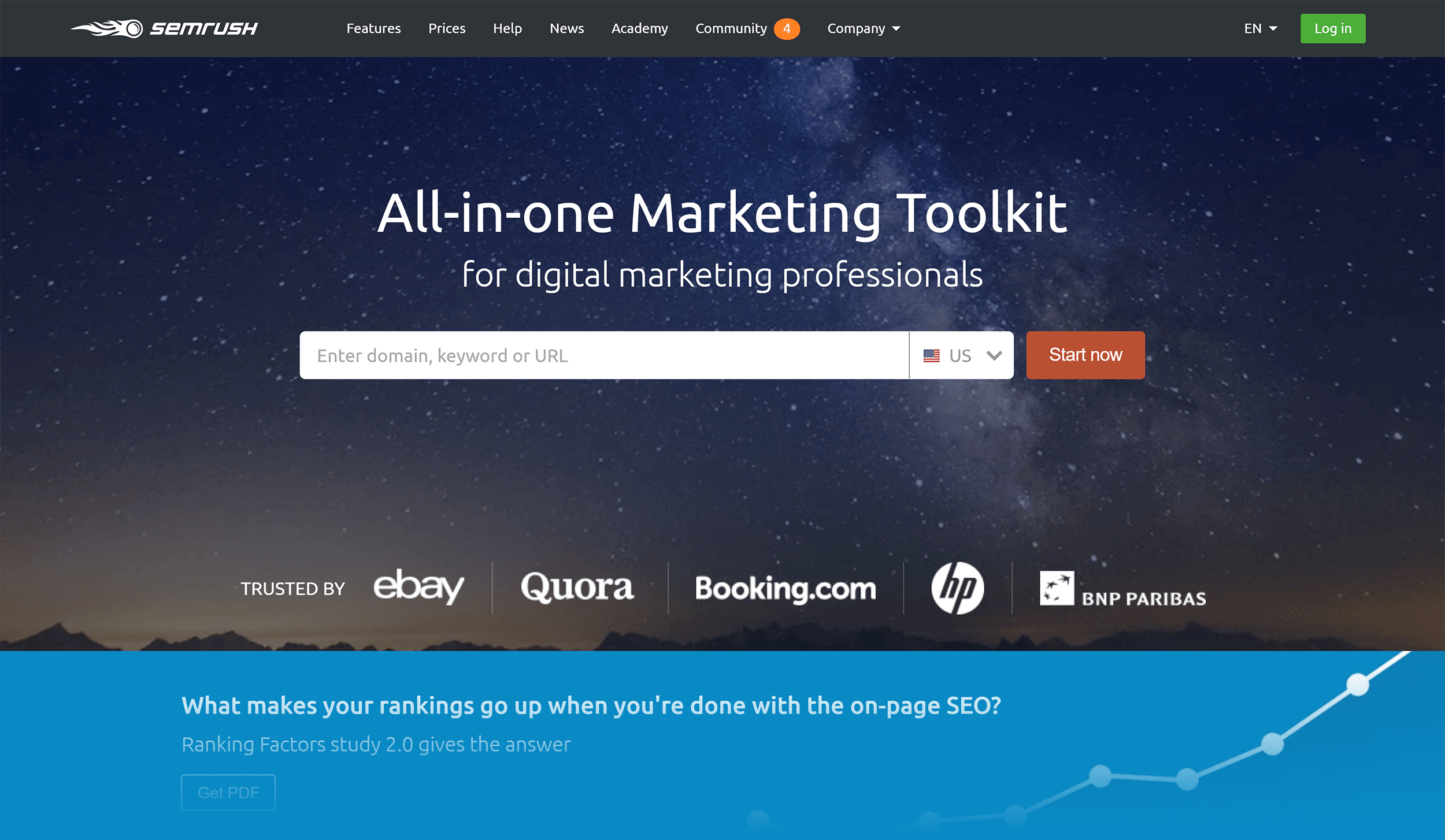
So: why are rankings helpful to track?
Your rankings tell you whether or not your site is trending in the right direction.
For example, let’s say you rank #10 for your target keyword:
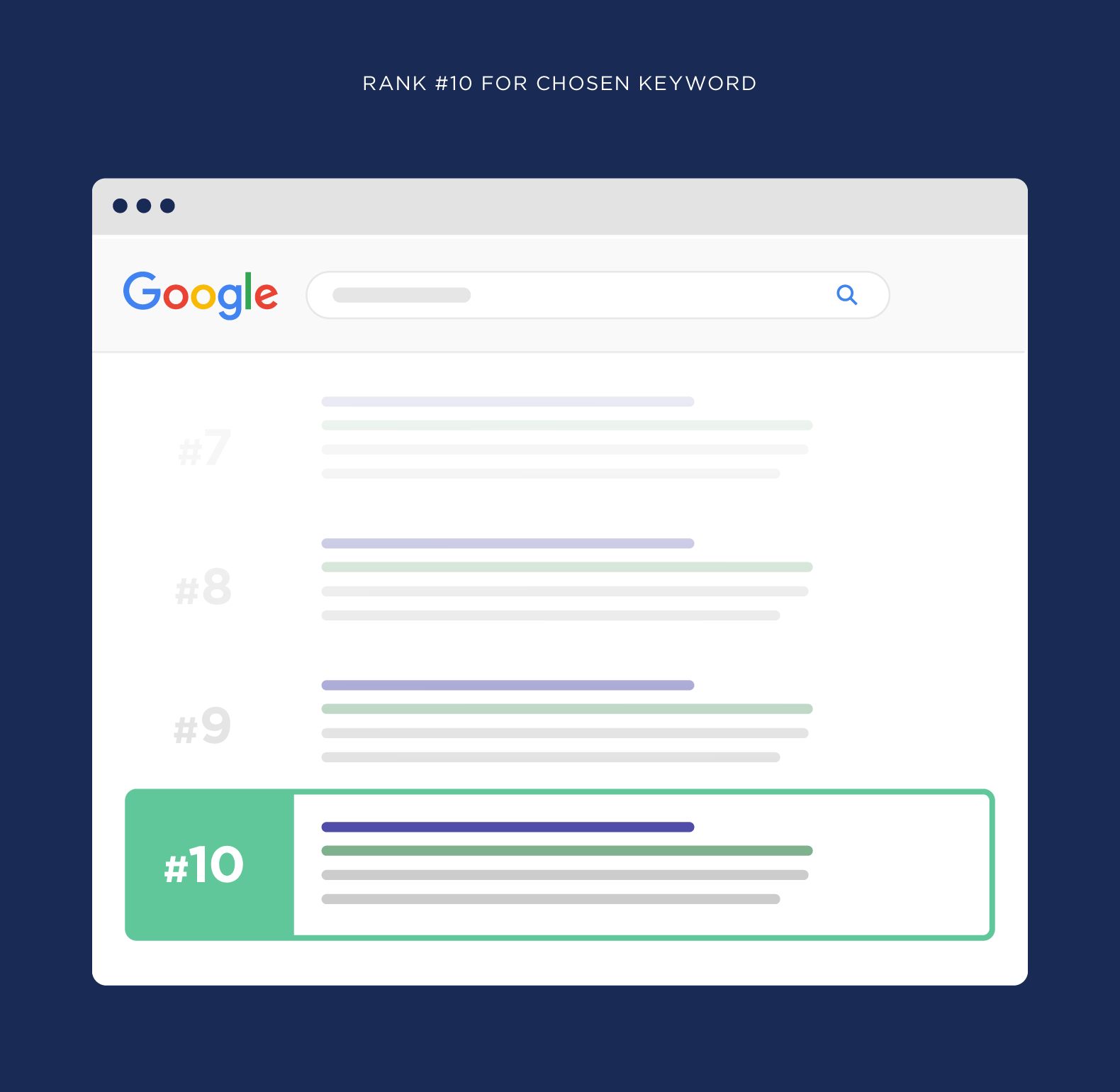
And you used blogger outreach to get 9 new links to that page.
These links moved your page from #10… to #6.
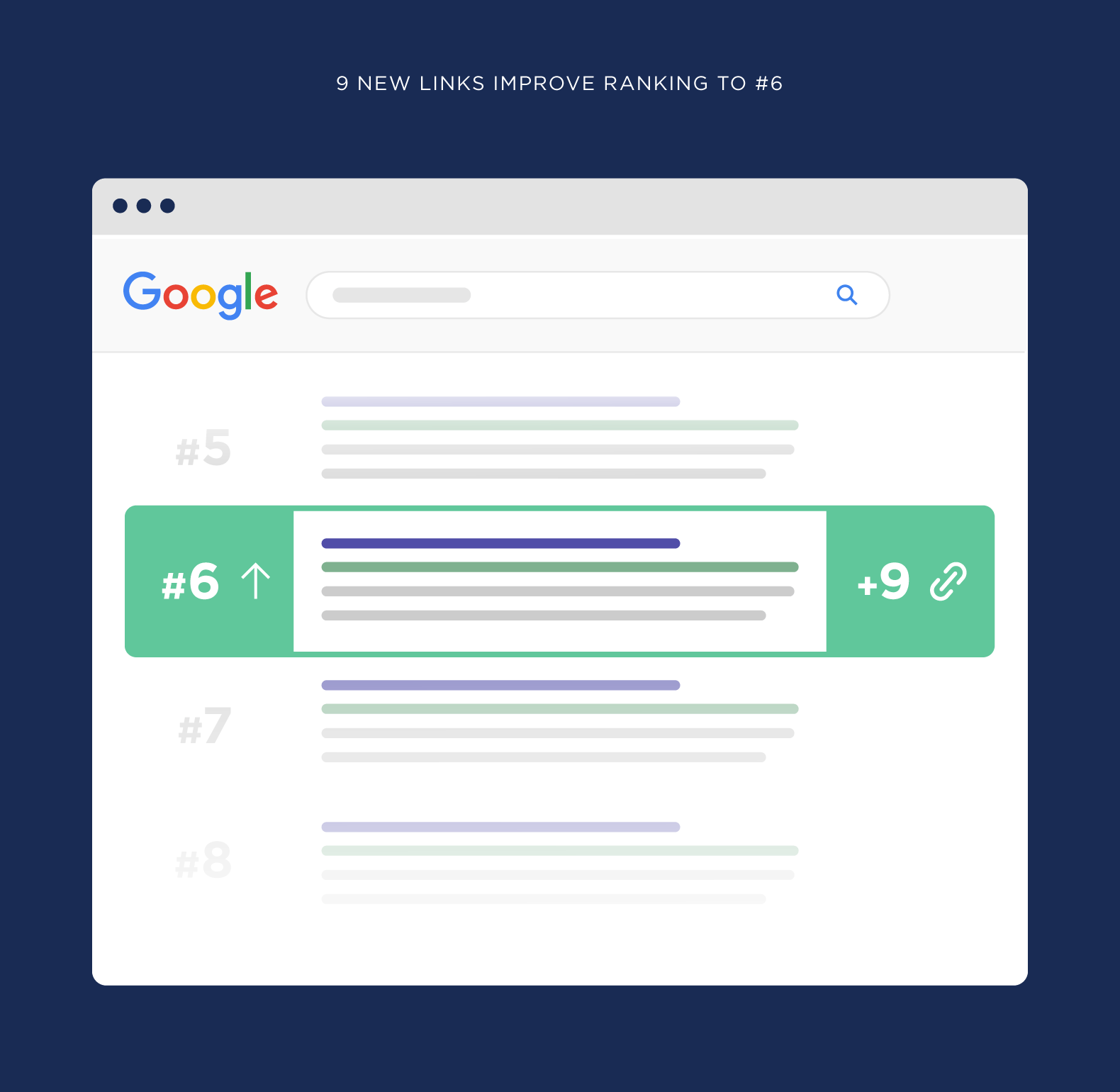
Those improved rankings probably won’t make a dent with your organic traffic. But that doesn’t mean your outreach campaign didn’t work.
In fact, it showed that your link building DID work. And that you should double down on it.
Rankings are also helpful to diagnose a sudden increase or decrease in organic traffic.
For example, let’s say your Google Analytics shows that your organic traffic went up by 10%:
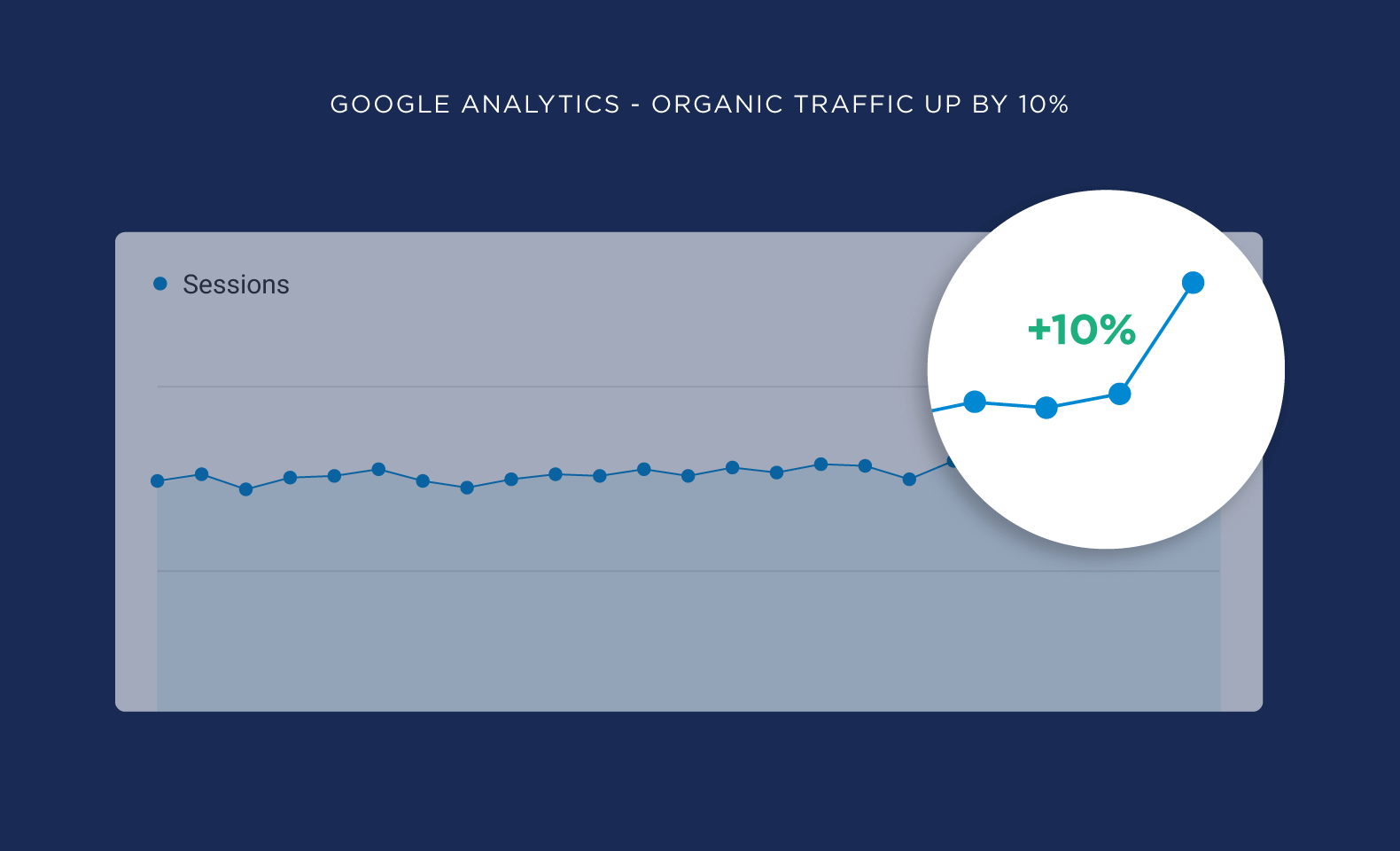
Your keyword rankings can help you figure out which webpage (or webpages) were behind that boost.
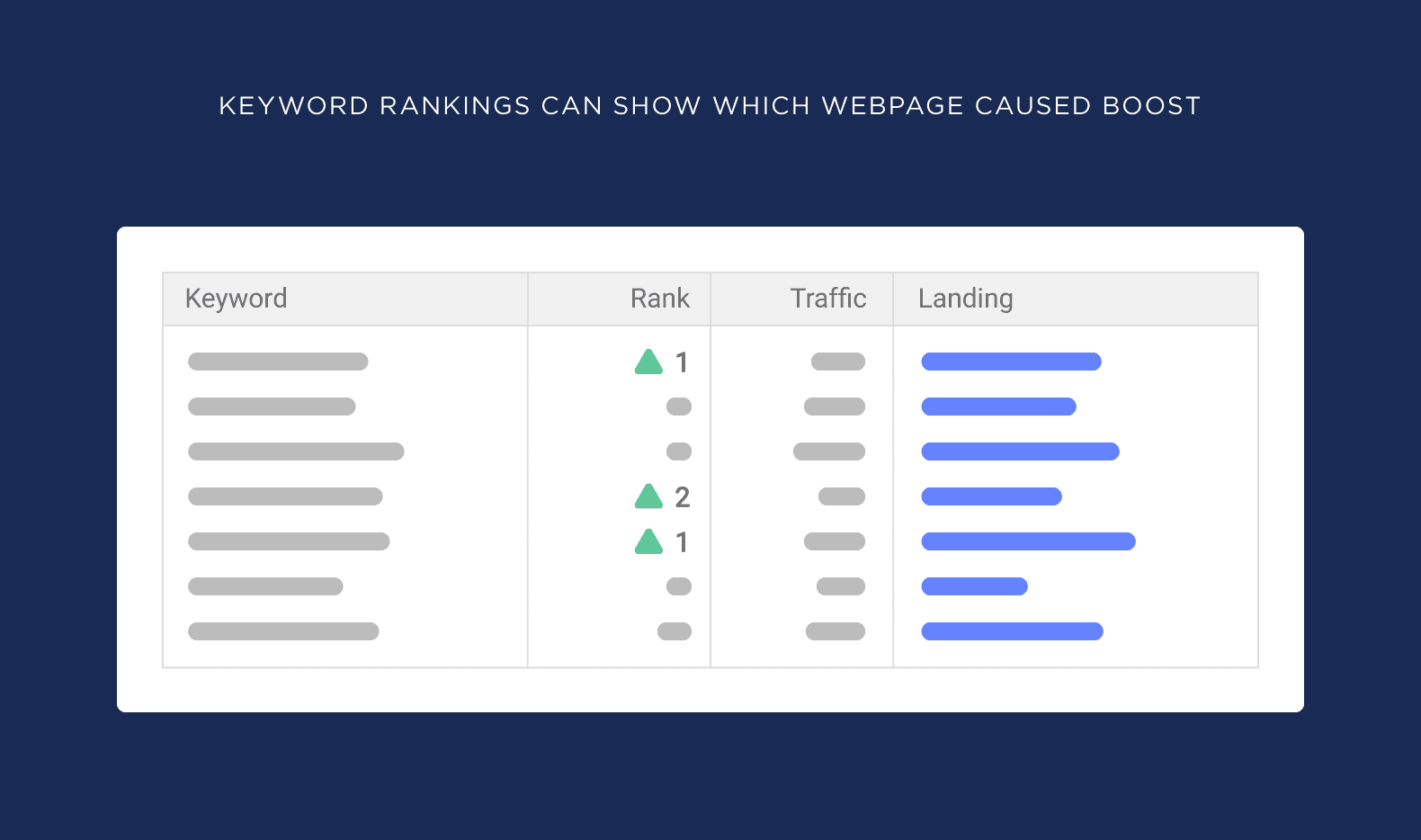
SEMRush Traffic Cost
SEMRush Traffic Cost estimates the value of a site’s SEO traffic.
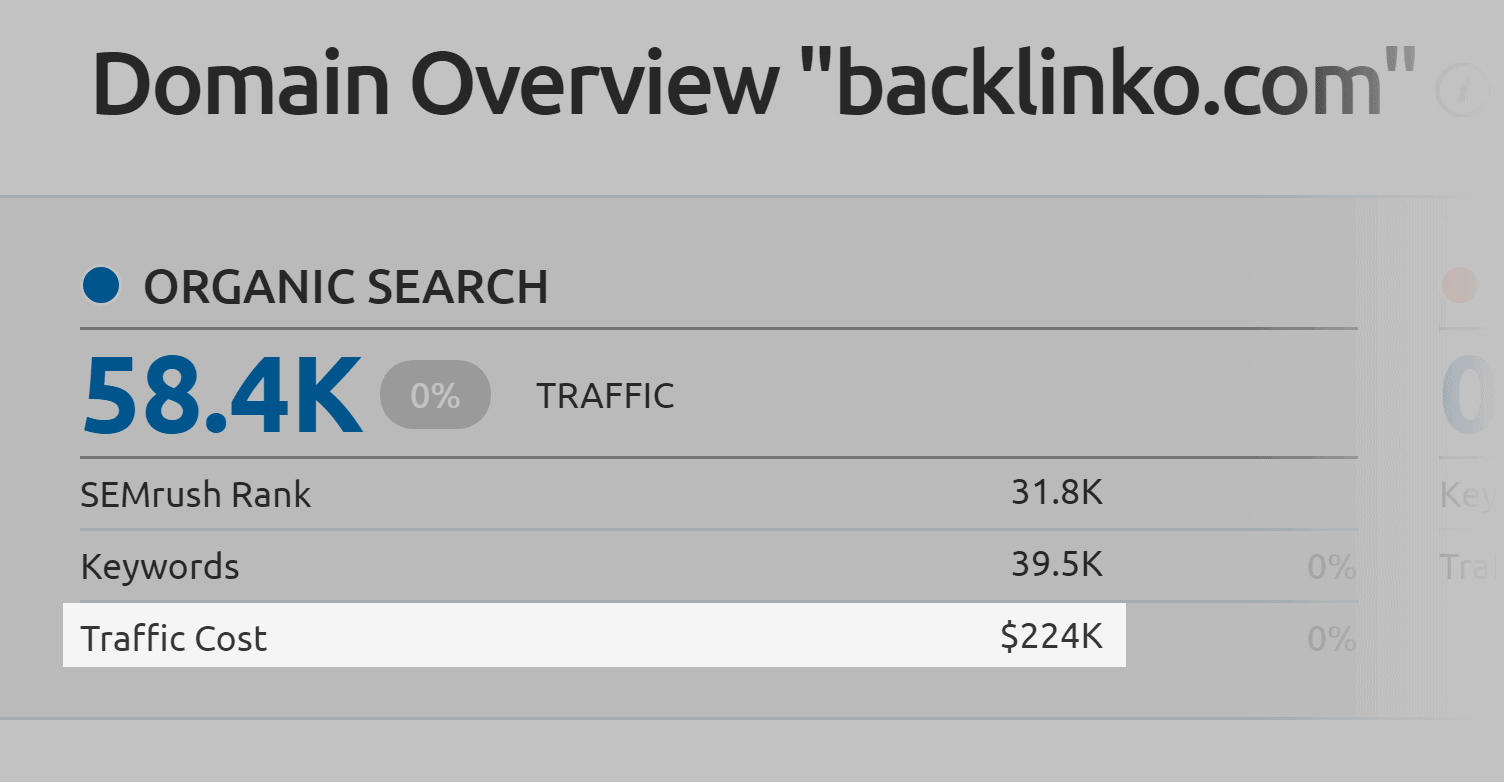
In other words, the metric answers the question:
How much would it cost to get this same exact traffic using Google Ads?
I actually find myself referring to SEMRush Traffic Cost more and more.
That’s because it doesn’t just look at traffic quantity (like organic traffic).
It also measures traffic quality.
I’ll explain with an example…
A few months ago, this page on my site started to rank on the first page for my target keyword:

And it led to a BIG traffic spike to that page.

All good, right?
Well… kind of.
The average CPC for my target keyword (“YouTube channel names”) is only .56 cents.
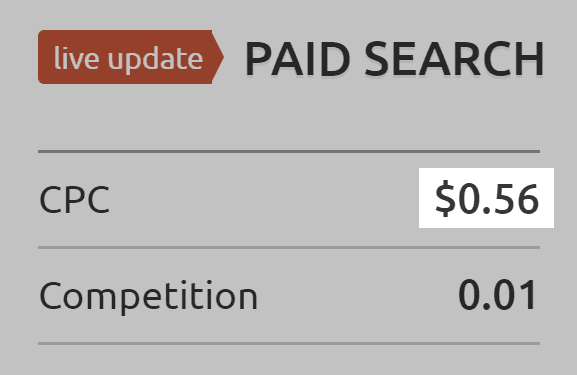
So every 10 visitors to that page is “worth” about 5 bucks.
Not horrible …but it’s not going to increase my SEMRush Traffic Cost.
Now:
Around the same time that my YouTube channel name page hit the first page, this post on how to do SEO site audits cracked the top 5:
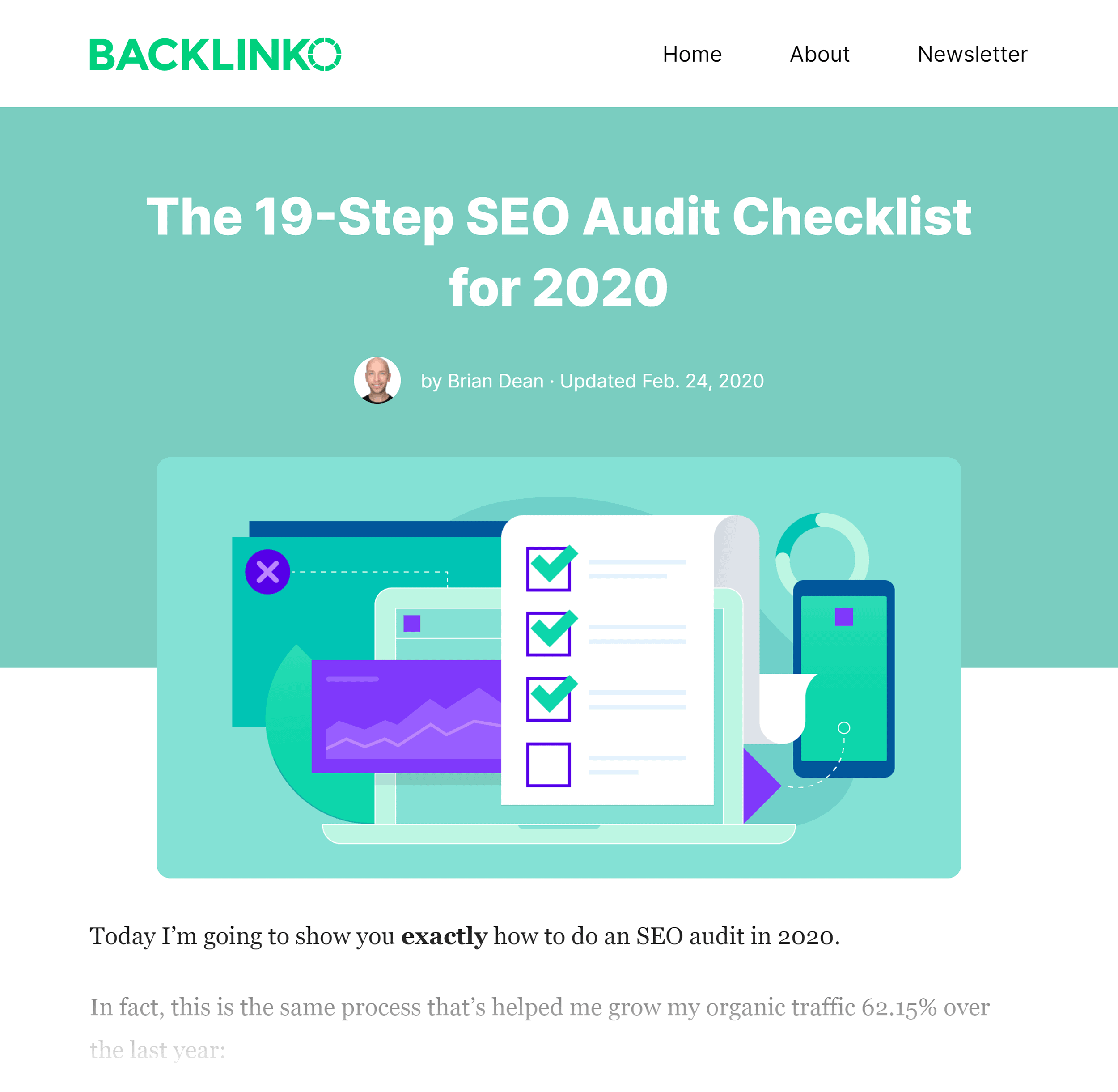
And my organic traffic also went up:

But here’s where things get interesting.
The average bid for “SEO audit” is $15.54:
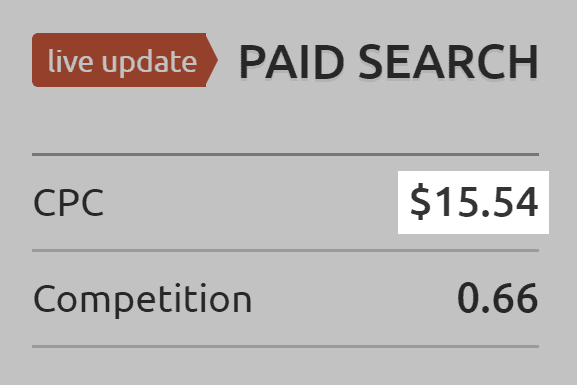
Which means that every 10 visitors to that page is worth $155.
So even both pages got more organic traffic, the traffic increase for my SEO audit page is worth 31x more:
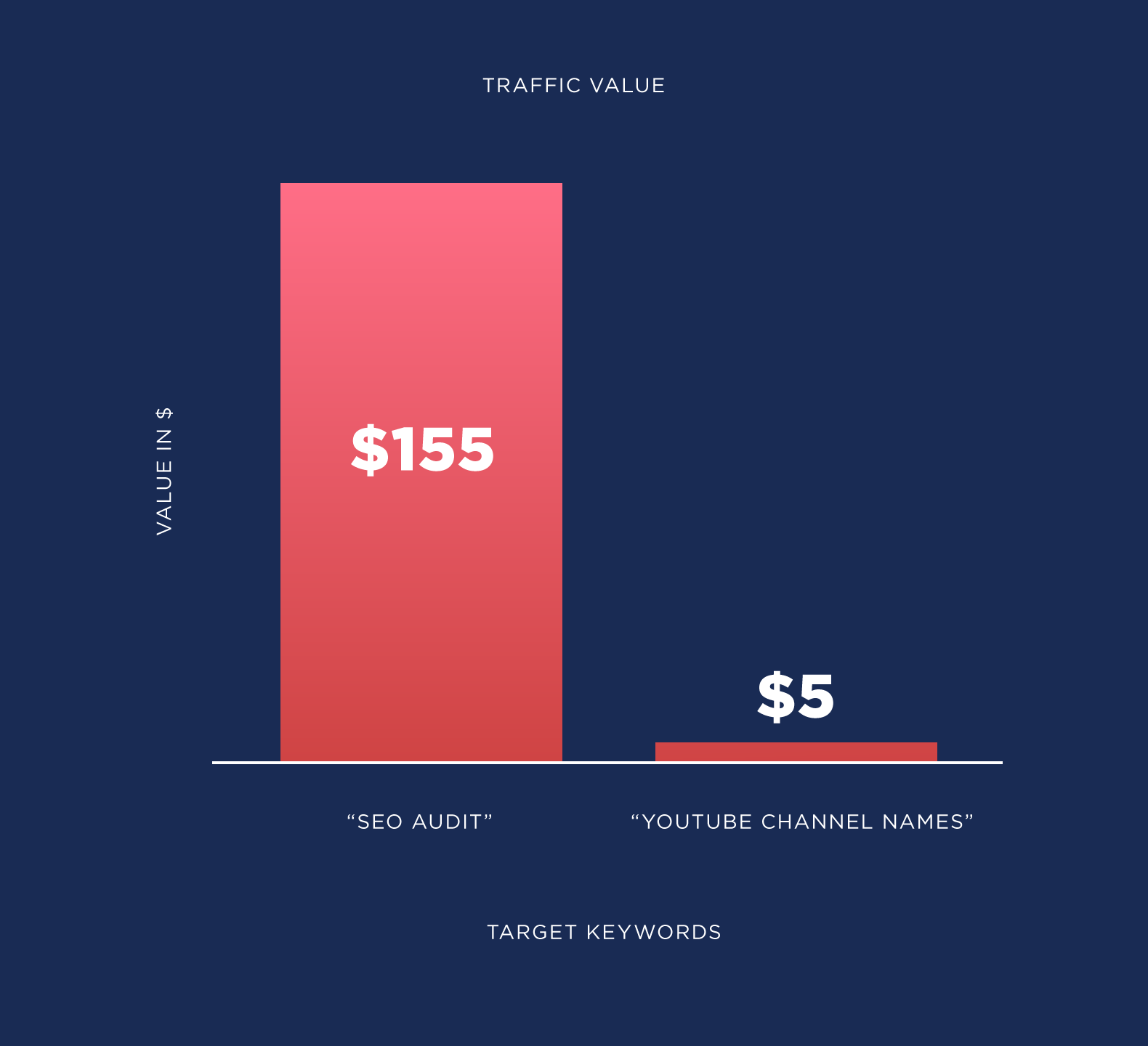
Search Engine Visibility
Search Engine Visibility measures how many people see your site in the search results.
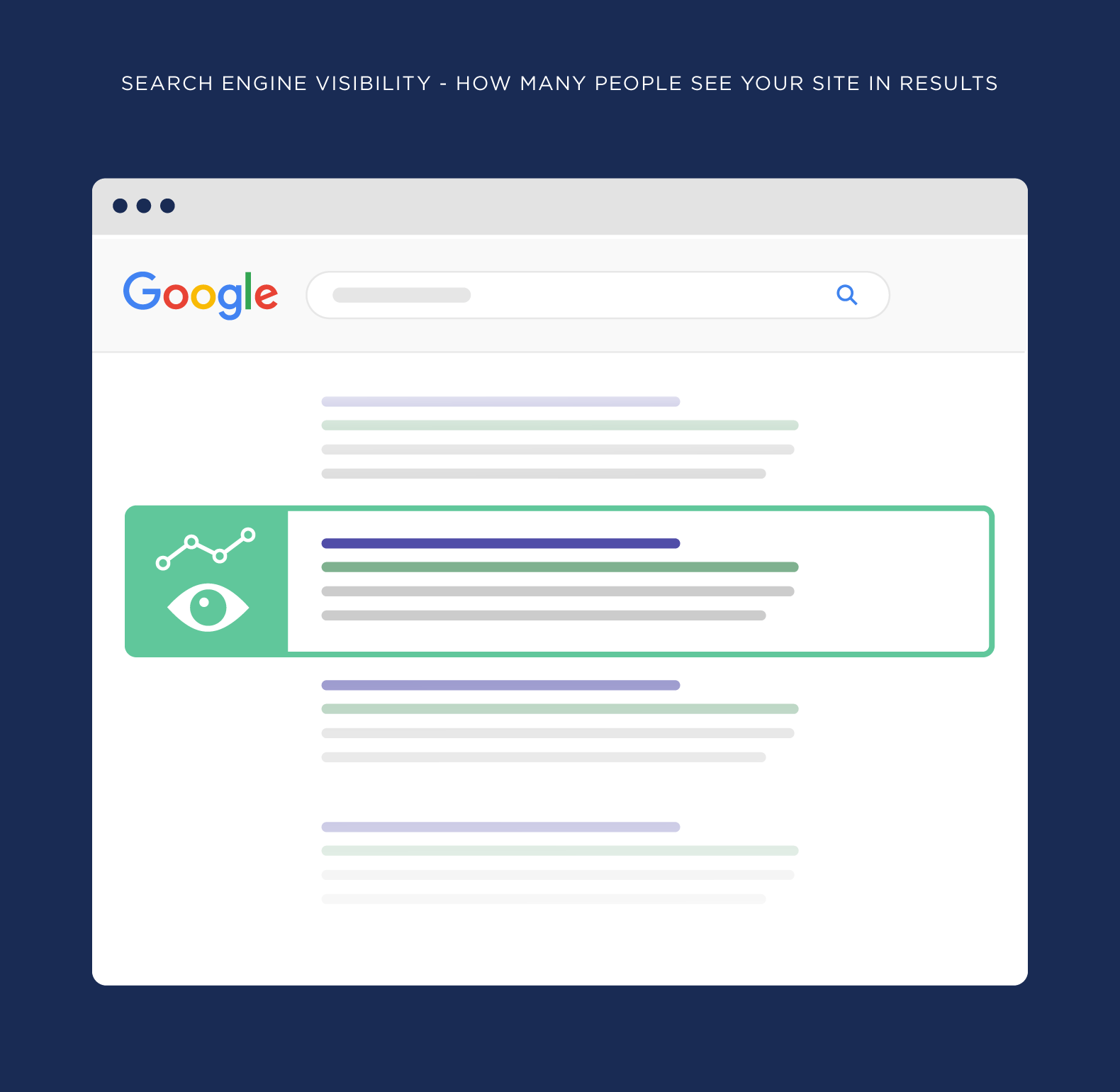
In my opinion, this metric isn’t super helpful.
(After all, it’s not about how many people see your result. It’s about how many people click and convert)
That said, Search Engine Visibility can give you a high-level overview of your SEO health.
In general, if your Search Engine Visibility is going up, that’s a good sign.
You can track your site’s Search Engine Visibility in Moz Pro:

Or SEMRush:

So yeah, there’s a place for Search Engine Visibility. But I wouldn’t focus on it.
Clicks and Impressions
The Google Search Console gives you A TON of useful information on your site’s overall SEO performance.

And you can use the GSC to measure results from your SEO efforts.
Specifically, you want to look at your site’s overall “clicks”:
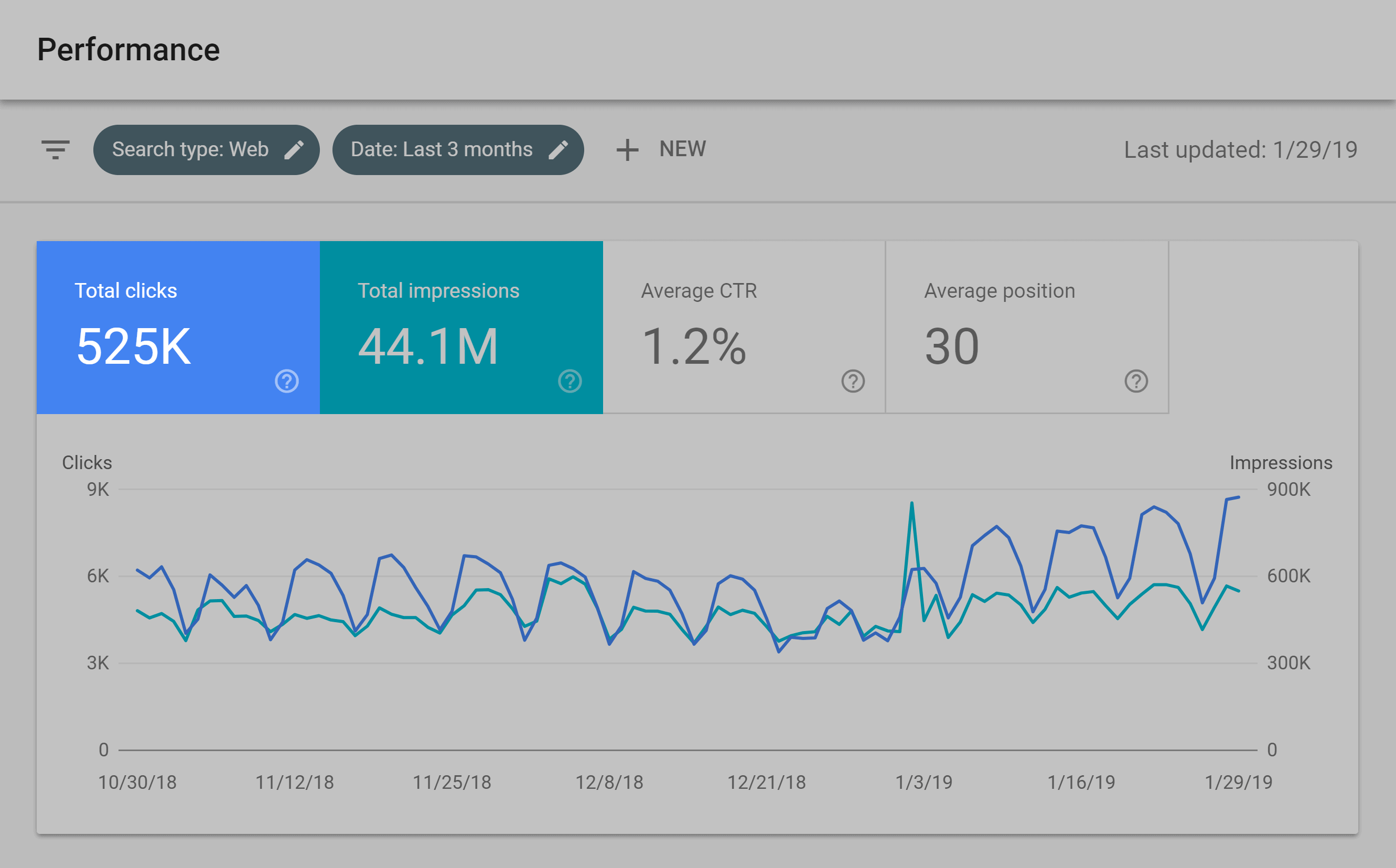
(“Clicks” are the total amount of Google users that click on your site in the search results. It’s basically the equivalent of organic traffic in Google Analytics)
And “Impressions”:
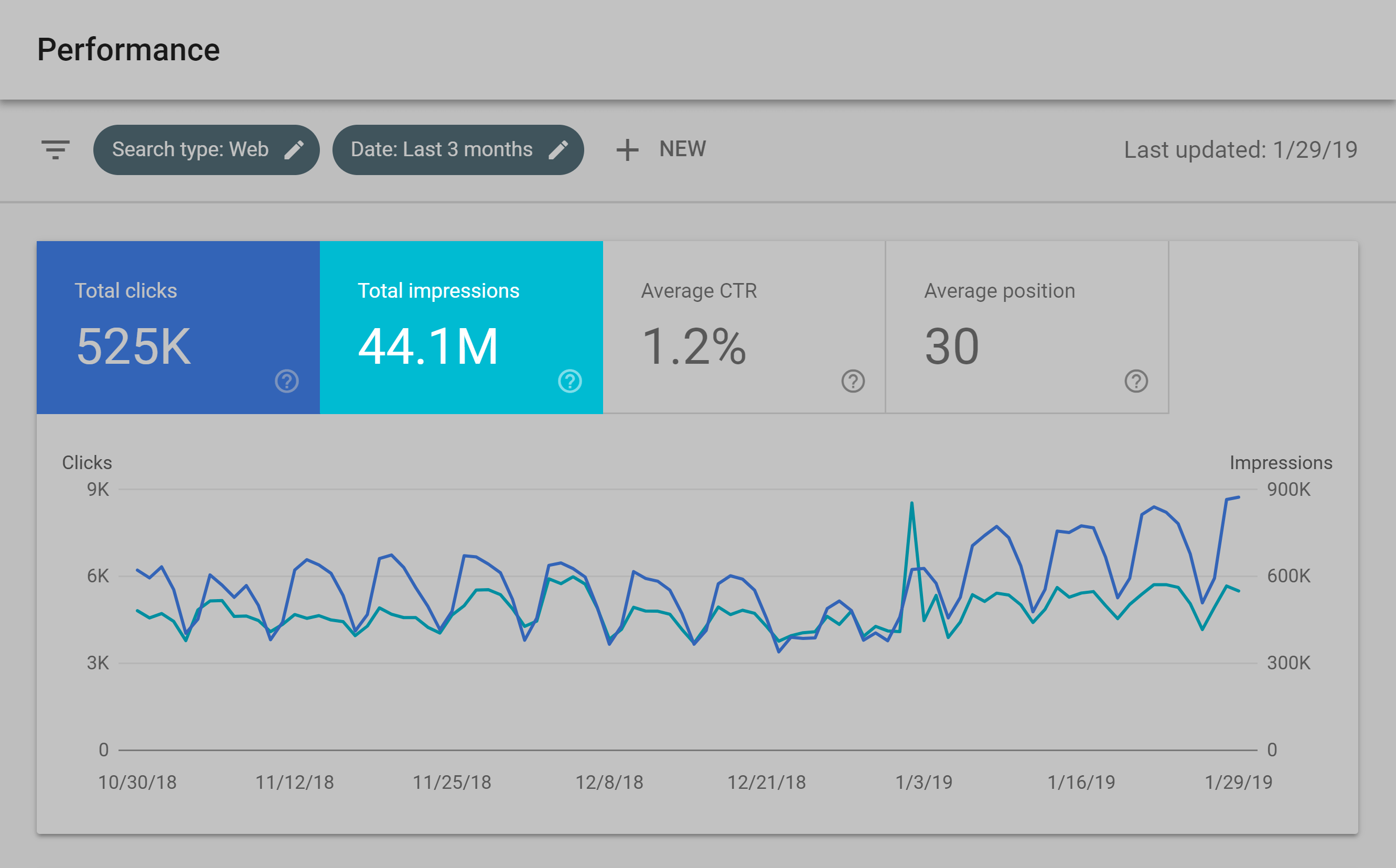
(“Impressions” are the total number of users that saw your site rank for a specific keyword)
You can go nuts and look at how a page’s clicks, impressions and average organic CTR have changed over time.
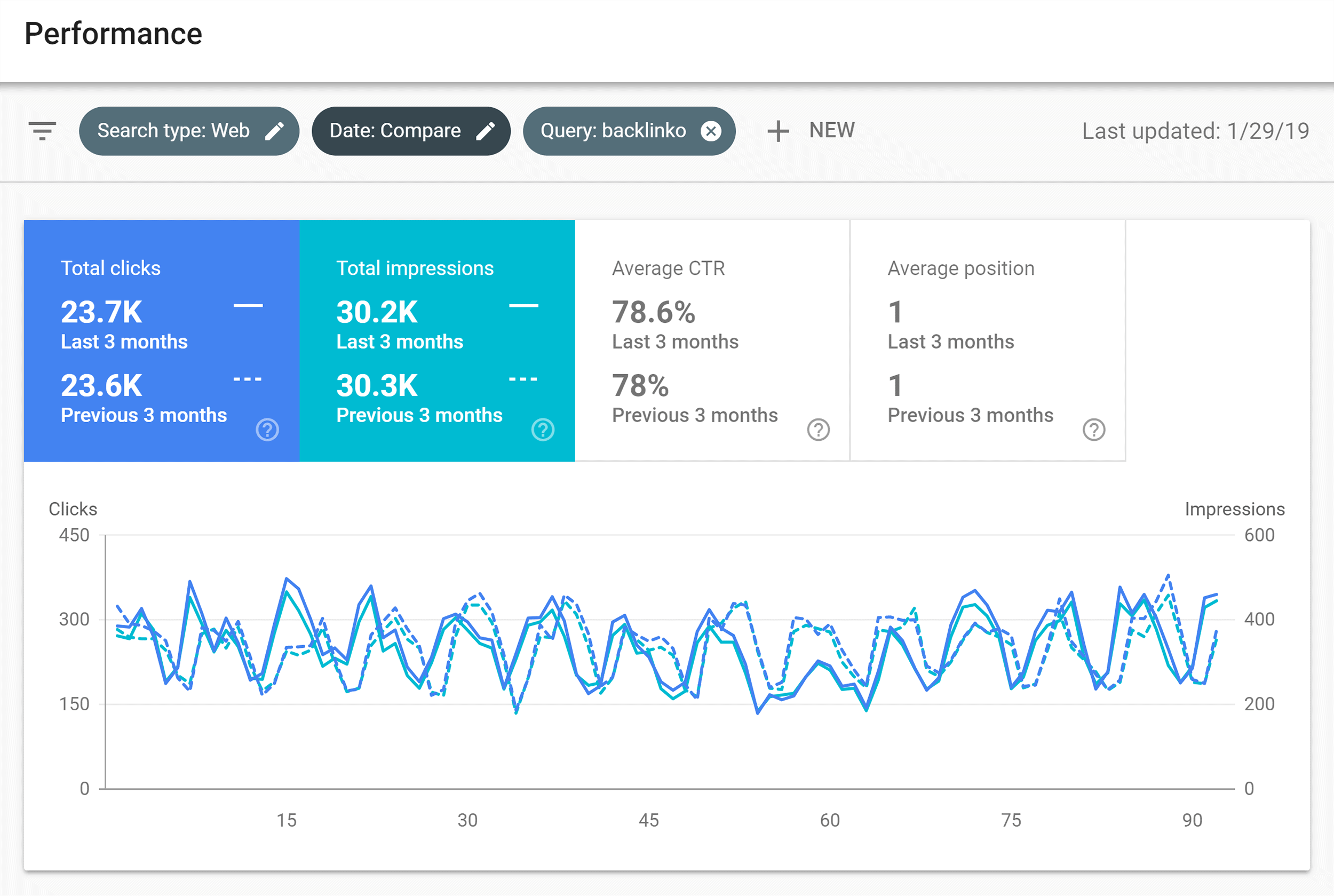
(Which is smart if you have a high-priority page or keyword that you’ve been working on)
But when it comes to tracking your site’s overall SEO results, “Clicks” and “Impressions” tell you pretty much everything you need to know.
Conversions
At the end of the day, the point of SEO is to sell more stuff.
That’s why I recommend that people track everything I outlined so far… and total sitewide conversions.
For example, the #1 goal of my site is to build my email list.
So I track the number of visitors that sign up to my email list in Google Analytics.
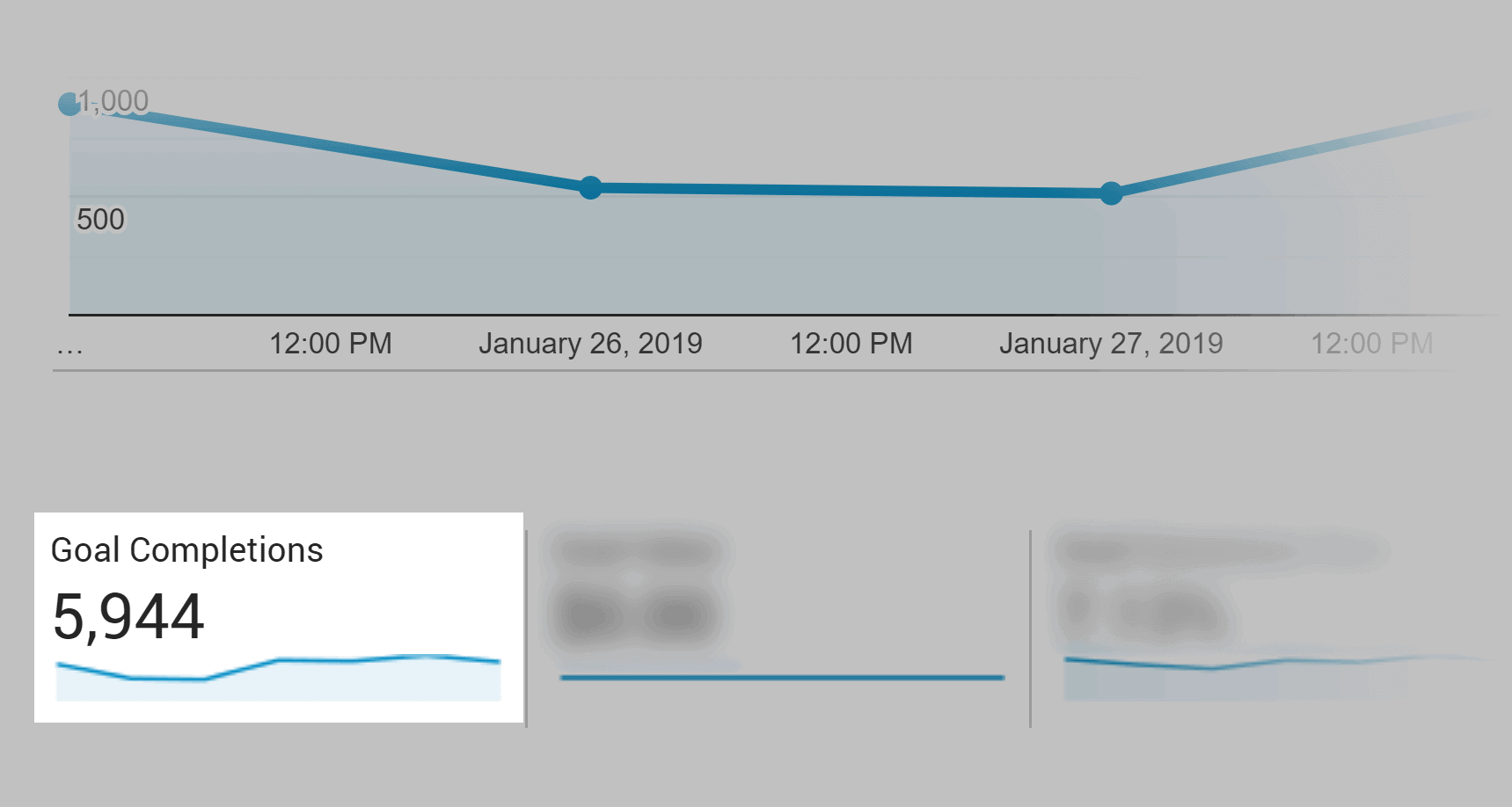
And if you want to really zero-in on how well SEO is working, you can track how many conversions came from Google users:

You can even look at how many new leads of customers came in from different search engines (like Bing):
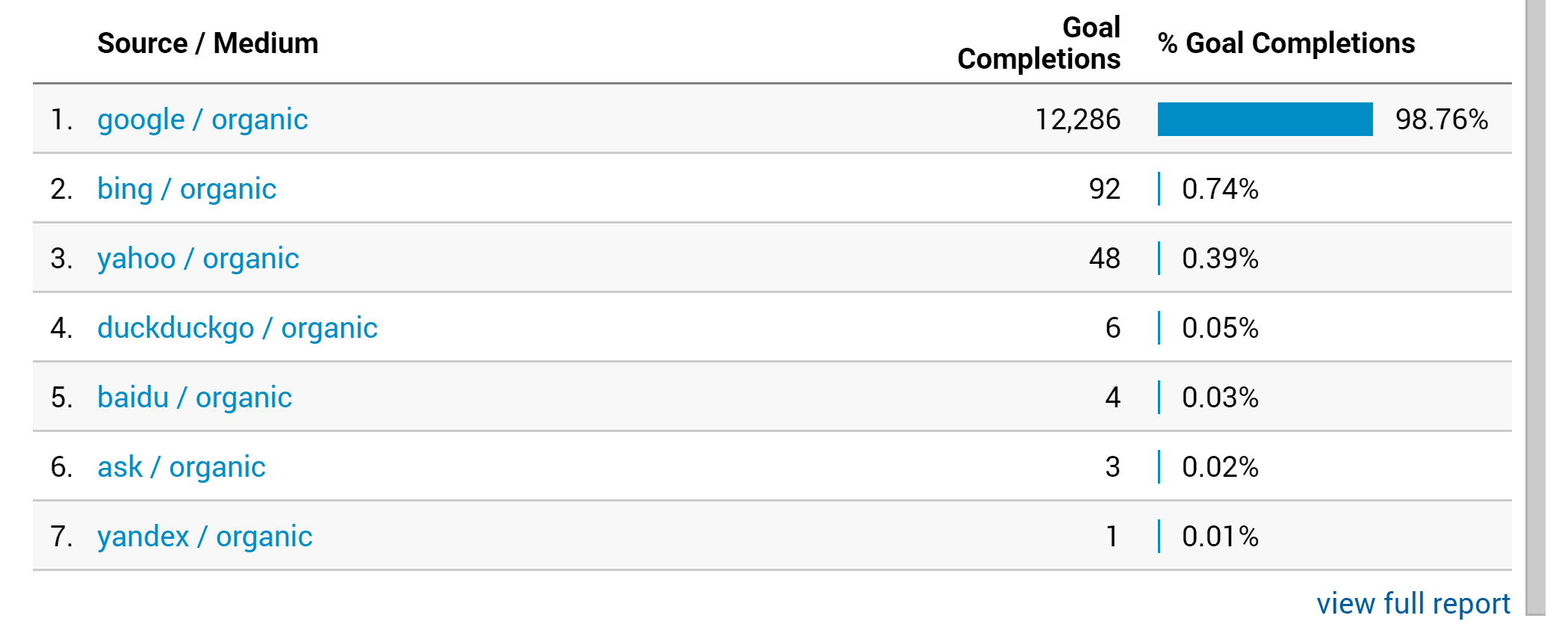
One thing I should point out:
It’s possible for organic traffic to go UP and conversions to do DOWN. Or for conversions to be flat even though your organic traffic increased significantly.
Why does this happen?
Well, it could be that you’re not targeting keywords with a strong commercial intent. So people are visiting your site, but they’re not interested in what your site sells.
Or could be that conversion tracking isn’t setup correctly.
Or maybe you made change to your website that hurt your conversion rate or user overall experience.
But in 95% of cases, your total conversions will increase along with organic search engine traffic.
Learn More
Set up conversion tracking for your website: A guide from Google that shows you how to track conversions on your site using Google Analytics.
How to Get Higher Google Rankings [New Checklist]: A checklist that shows you how to improve your technical SEO. You’ll also learn how to create content that people will link to and share on social media.
How Long Does SEO Take (The REAL Answer): Great video by John Lincoln on the factors that influence how long it takes for SEO to start working.
My 15 All-Time BEST SEO Tips (That Get Results): A video with 15 actionable strategies to help you get more search engine traffic.